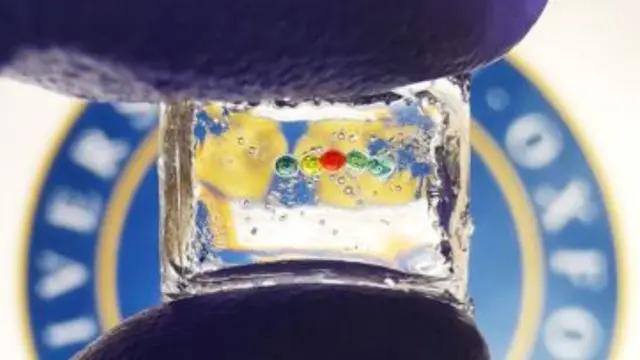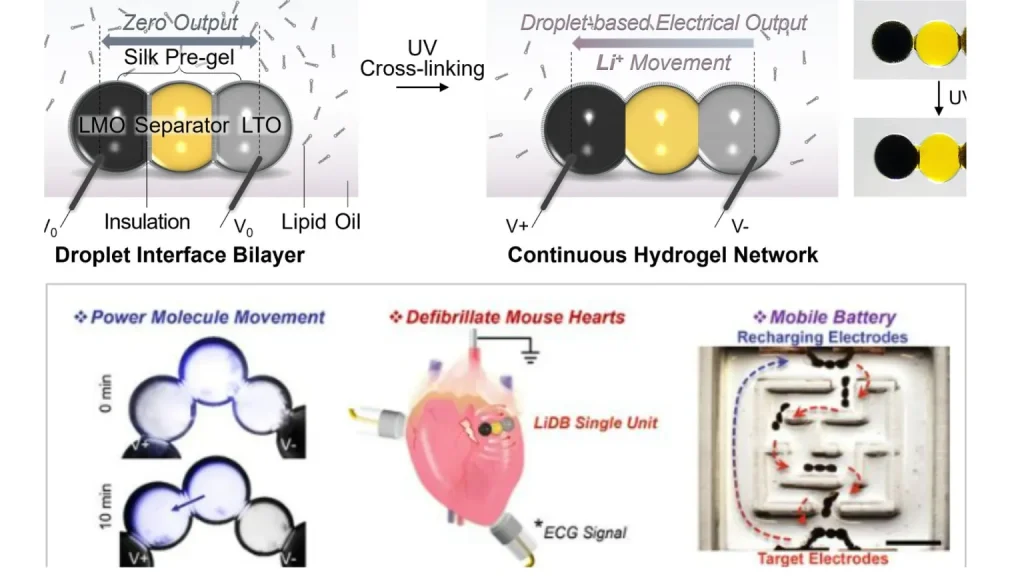Researchers from the University of Oxford have unveiled the world’s smallest lithium-ion battery, a breakthrough poised to revolutionize biomedical applications.
Dubbed the ‘droplet battery’, this innovation marks a significant stride towards developing miniature, biocompatible power sources.

Traditionally, the creation of small-scale biomedical devices has been hindered by the lack of compact and efficient energy solutions.
However, these revolutionary advancements may soon allow next-generation devices to enhance medical care in significant ways.
The droplet battery is made from biocompatible hydrogel droplets and features light activation, recharging capabilities, and biodegradability.
These key characteristics make it suitable for sensitive medical tasks including heart tissue defibrillation and pacing.
The battery addresses the long-standing energy supply challenges faced by biomedical devices through its unique surfactant-supported assembly process, where molecules resembling soap link three tiny droplets that generate energy via lithium-ion interactions.
This pioneering battery has immense potential as a mitigating agent for cardiac arrhythmias, a prevalent cause of mortality.
Notably, the battery has successfully powered drug delivery and heart defibrillation mechanisms during animal model tests, indicating its promise as a non-invasive solution in managing heart irregularities.
“Our droplet battery represents a groundbreaking advancement. It is the smallest hydrogel lithium-ion battery to date, boasting formidable energy density,” said Dr. Yujia Zhang, leading the study from Oxford’s Department of Chemistry.
Dr. Zhang, alongside his team, believes this innovation will unlock new opportunities across various biomedical fields.
The battery’s flexibility is further enhanced with embedded magnetic particles, enabling it to act as a mobile energy carrier.
This attribute could revolutionize microrobotics, both in delivering energy remotely and executing sophisticated biomedical tasks safely.
Professor Hagan Bayley, leader of the research group, highlighted the sophisticated nature of this battery, expressing optimism about its implications for biocompatible electronic devices.

Following successful proof-of-concept heart treatments, the Oxford team foresees extensive applications in medical and clinical spheres.
Acknowledging the vital role these devices could play, researchers have filed a patent through Oxford University Innovation, expecting their novel miniature battery to broaden clinical care’s horizons.
It exemplifies a promising pathway for creating tiny robots adept at conducting precise tasks in bio-applications.
This formidable advance in miniature battery technology hints at a future where powerful, biocompatible devices safely integrate with the body’s physiology, offering improved diagnostic and therapeutic options for patients worldwide.
